|
By Chris Rossini
The general election isn't even officially underway, and the American public is already floating in a sea of lies. Every presidential election has turned into nothing more than two gangs toiling night and day, trying to find the right combination of lies that will garner the most votes. It's like cracking a safe. The side with a better combination come November 8th wins. Then the whole script of lies (i.e., campaign promises) can get tossed. So before the general election officially gets rolling, let's take a trip down memory lane. Let's look at the combination that worked the last time around. Here are just a few of Obama's campaign promises, and boy, they're really something:
That video doesn't count the anti-war promises that were made. Remember how Obama was going to end Bush's disastrous foreign policy? Not only did he do nothing of the sort, but actually added more wars of his own!
And that's with his Nobel Peace Prize! How has the military-industrial-complex fared during the glorious time of Hope & Change? Let's look at a few stock prices?
Do you think investors in the military-industrial-complex are scared of what's coming? Are they selling like peace is about to breakout anytime soon?
Don't worry though, because this time is really different. Instead of "Hope & Change" it's "Make America Great Again." They are different words...so there's that. Both Hillary & Donald will grow government further into the stratosphere, devouring our lives and liberty under different slogans. Come back in four years and we'll go over how disgusted Americans are, and how there needs to be a change in Washington!
By Ron Paul
Americans lived without the IRS for 135 years, and much longer without the TSA. The VA doesn't work because bureaucracy and socialized medicine can't work, no matter how many reforms are enacted. We're seeing the failure of ideas with the controversies surrounding all three departments. Liberty and private property solve problems. Bureaucracy only compounds them. I discuss below:
A major influx of Syrian refugees has begun to hit US shores. President Obama wants to radically increase the numbers coming in over the next year. Refugees must be calculated in as part of the costs of an interventionist foreign policy. But how high are these costs?
By Tho Bishop Venezuela is in a state of complete crisis. The country has been forced to face the horrors of hyperinflation, food shortages, and devastating depression. In spite of having the world’s largest oil reserves, the country has had to resort to rationing electricity. A horrifying article by the New York Times depicts the state of Venezuelan hospitals, with children dying by the day due to a lack of medicine and basic supplies. This is the terrifying reality of socialism, the inevitable consequence of the economic policies of the late Hugo Chavez and his successor, Nicolás Maduro. Since 1999, the two socialist administrations championed price controls, nationalization of industries, and wealth redistribution. While it is not surprising to see these policies supported by Marxist politicians, what is deeply troubling is the amount of support the Venezuelan model has received from prominent economists over the years. During a visit in 2007, Joseph Stiglitz, who received the 2001 Nobel Prize in economics, praised what he called “positive policies” of the Chavez administration: Venezuelan President Hugo Chavez appears to have had success in bringing health and education to the people in the poor neighborhoods of Caracas. ... It is not only important to have sustainable growth, but to ensure the best distribution of economic growth, for the benefit of all citizens. Last year, as chief economist for the Roosevelt Institute, Stiglitz called for “rewriting the rules of the American economy” in a crusade against income inequality. His policy recommendations include higher taxes, more “smarter” regulation, and having the Federal Reserve focus more on unemployment than keeping inflation low — a call for an even more activist Fed than we’ve had since 2008. It is ironic that Stiglitz has chosen to brand his policy recommendations as some new innovative concept for the country, when it is simply doubling down on the interventionist policies that the nation has suffered from for over 100 years. Unfortunately, hearing such drivel come from a Nobel Prize winner isn’t surprising. Karl-Friedrich Israel has recently noted how the Nobel Prize has a history of being used as an endorsement of central planning. Socialist governments have long been able to count on American economists to serve as apologists for their schemes. In the 1960s, Paul Samuelson’s widely read economics textbook infamously described the socialist economy of the Soviet Union as growing faster than America’s. This explains how Bernie Sanders has been able to receive the endorsement of 170 self-proclaimed “economists and financial experts” during his campaign.
Ludwig von Mises once wrote, "No one can escape the influence of a prevailing ideology.” The images coming from Venezuela should serve as a potent reminder of how dangerous the ideas of men like Joseph Stiglitz are. Statism and economic interventionism must be rejected, in order for humanity to thrive. This article was originally published at The Mises Institute. By Jacob Hornberger
In light of President Obama’s current trip to Vietnam, Secretary of State John Kerry, U.S. Sen. John McCain, and former U.S. Sen. Bob Kerry had a joint op-ed in the New York Times yesterday entitled “Moving On in Vietnam, but Remembering Its Lessons.” Unfortunately, however, the three Vietnam veterans have failed to draw the real lessons to be learned from that misbegotten war. Here are the lessons they learned from the war: (1) that Americans should always thank and praise the troops no matter how wrongful the war that there are waging; (2) that American leaders need to be honest with the American people as to the aims of any U.S. war; (3) that U.S. officials need to exercise humility with respect to foreign cultures when waging wars in foreign lands; (4) “that with sufficient effort and will, seemingly unbridgeable differences can be reconciled,” as manifested, the three of them point out, by the resumption of diplomatic relations between the United States and Vietnam. Unfortunately, the three men, along with the entire Washington national-security establishment, have failed draw the truly important lessons of the Vietnam War, which are as follows: First lesson: The U.S. government has no business intervening in foreign wars, especially civil wars of other countries. The Vietnam conflict was always a civil war, one that the U.S. government had no legitimate authority to intervene in. In other words, the conflict was none of the U.S. government’s business, not only because there was never a congressional declaration of war, as the U.S. Constitution requires, but also because the Constitution doesn’t authorize the U.S. government to invade countries who are engaged in civil wars. Like the modern-day interventions in the Middle East, the Vietnam War turned out to be one great big debacle. Some 58,000 American soldiers died for nothing. Absolutely nothing. No, the dominoes didn’t fall, as U.S. officials were saying they would if the U.S. did not intervene, and no, the commies didn’t end up conquering America and the world. The United States got defeated and Vietnam was reunited under communist rule. And today, the president and his national-security establishment are playing nice with the same brutal communist regime that killed those 58,000 American men. Second lesson: Making nice with the Vietnamese communist regime shows what a crock the entire Cold War was and what a crock the renewed Cold War is. As I point out in my ebook The CIA, Terrorism, and the Cold War: The Evil of the National Security State, the Cold War was never necessary. All those years, the United States could have lived in peaceful coexistence with the Soviet Union, China, Cuba, North Korea, Cuba, Guatemala, Chile, Iran, Nicaragua, Venezuela, and all other regimes that were socialist or communist in nature. If U.S. officials can play nice with the brutal communist regime that killed 58,000 American soldiers, it could have played nice with all the others communist regimes. It can do so today with Cuba, North Korea, Russia, China, and Venezuela. Instead, throughout the Cold War the U.S. national-security state continued provoking crises and confrontations with the communist world rather than simply leaving them alone. Was it a bad thing that the Soviet Union was occupying Eastern Europe and East Germany?Of course. Who wants to be ruled by communists? But let’s not forget it was the U.S. government that delivered Eastern Europe and East Germany into the hands of the communists in the first place. That was because they had played nice with the Soviet communists during World War II, making them America’s partner and ally during the war and, even worse, giving them control over Eastern Europe and East Germany — only to use that control later to launch the Cold War and convert America’s federal government to a national-security state. As we are learning with Obama’s trip to Vietnam, which still controls South Vietnam with a communist iron fist, it would have been possible to peacefully coexist with the Soviet Union, China, Cuba, and the rest of the communist world. Indeed, consider Cuba, which the U.S. national-security state convinced Americans was a grave threat to “national security.” Yet, the fact is that Cuba never attacked the United States, never assassinated a U.S. official or tried to do so, never initiated terrorist attacks or acts of sabotage against the United States, never imposed an embargo against the United States, and never invaded the United States. In other words, despite all the Cold War indoctrination and hype about Cuba, the fact is that that communist outpost 90 miles away from American shores never engaged in any aggression against the United States. Instead, it was the U.S. national security state that did all those things to Cuba. They invaded the island, they initiated acts of terrorism and sabotage inside Cuba, they imposed a brutal embargo that is in place to this day, and in partnership with the Mafia, if you can believe that, they tried to assassinate Cuba’s president, Fidel Castro. What about the nuclear missiles that the Soviet Union placed in Cuba during the Kennedy administration? Entirely defensive, intended to deter another U.S. invasion of the island. As soon as Kennedy promised that the United States would not invade Cuba again, the missiles were withdrawn. Of course, that deal led the U.S. national security establishment to believe that Kennedy was an appeaser and a traitor who had given America the greatest defeat in its history, at the hands of the communists. The U.S. war against Cuba never had to be. There could have been peaceful coexistence with that country, just as there is today with Vietnam. The U.S. could have simply left Cuba and Vietnam alone. But the U.S. national-security state would not permit that to happen. It would not permit anything to interfere with the continuation of the Cold War, which was always the key to ever-increasing budgets for the Pentagon, the CIA, and the rest of the national-security establishment. More than 50 years ago, President Kennedy realized what President Obama is just now starting to glimpse — that it’s not necessary to go to war against countries that have communist or anti-U.S. regimes. He came to the realization that the entire Cold War, which his national-security state was determined to continue waging, was a crock. Rejecting the pleas and demands of his national-security establishment, Kennedy reached out not just to restore regular relations with Cuba, as President Obama is doing today with Vietnam, he declared his intention to end the entire Cold War against the Soviet Union, Cuba, China, and the rest of the communist world. See, for example, his famous Peace Speech at American University on June 10, 1963 (the anniversary on which we are launching our newest ebook CIA & JFK: The Secret Assassination Files by Jefferson Morley, which can now be preordered). That was something that the U.S. national-security establishment was determined not to let happen. In the minds of the Pentagon and the CIA, Kennedy was leading America to a Cold War defeat, one in which the Soviet Union would inevitably become the most powerful country in the world, one in which the United States would end up having to take orders from the worldwide communist establishment. Kennedy’s decision to make nice with the communist world met with anger, disdain, antipathy, fear, and rejection from the Pentagon, the CIA, and the rest of the national-security establishment. (See FFF’s ebook JFK’s War with the National Security Establishment: Why Kennedy Was Assassinated by Douglas Horne. Also see Regime Change: The JFK Assassination by Jacob Hornberger.) That’s why Kennedy failed to let the Joint Chiefs of Staff and the CIA know in advanced what he planned to say in his Peace Speech at American University. It’s also why he didn’t let them know about the secret personal negotiations that he had initiated with Soviet Premier Nikita Khrushchev and Cuban leader Fidel Castro in an attempt to end the Cold War. That’s also why he began ordering a withdrawal of troops from Vietnam. All that ended, of course, on the day Kennedy was assassinated. The Cold War continued. The Vietnam War took off. The budgets of the Pentagon and CIA have never stopped growing. The interventions in the Middle East continue. The U.S. national-security establishment now operates a formal program of assassination. It’s clear that those big lessons from the Vietnam War have still not been learned. For 25 years, the U.S. national security state has been intervening in the Middle East and Afghanistan, under the notion that if they don’t, the dominoes will start falling and Saddam Hussein, al Qaeda, Iran, ISIS, or the radical Muslims will take over the Middle East, Europe, Asia, Latin America, Canada, and the United States, and not necessarily in that order. Whenever any public official even remotely suggests that the United States should stay out of those conflicts, the national-security establishment and its promoters scream to the high heavens about the grave threat to “national security” a non-interventionist foreign policy would pose. At the same time, the national-security establishment, operating through the U.S.-controlled NATO, continues to ensure that Cold War crises continue to persist by moving ever closer to Russia’s borders with troops and missiles. And, needless to say, the budgets for the national security establishment, which still exceed the military budgets of the next 8 countries combined, continue to grow. In sum, the big overall lessons from Vietnam are: Our ancestors were right. The U.S. government should leave the world alone, including not just the communist regime in Vietnam but also the rest of the communist world, Russia, China, Venezuela, and the entire Muslim world. Just leave them alone. And also unleash the private sector of Americans to interact with the people of the world. Drop all the sanctions, embargoes, travel controls, and trade restrictions. The biggest lesson from all this is that the adoption of a national-security apparatus, a type of governmental structure that characterizes totalitarian regimes, is the biggest mistake the American people have ever made. This article was originally published at The Future of Freedom Foundation.
The US Supreme Court this month effectively upheld what is known as the "Auer principle," a previous decision granting government agencies massive new legislative powers. With Congress asleep, the Executive Branch continues to gobble up its power and trample the Constitution. The "deep state" tentacles expand their reach...
By Chris Rossini In Venezuela...the ideas of socialism have sunk the nation into the abyss. People are resorting to hunting cats, dogs and pigeons for food. The politicians protect themselves from the people by using riot police: Meanwhile (at the very same time) an American politician criss-crosses the country peddling the ideas of socialism! The biggest government in the history of mankind, and one that has its claws in almost every aspect of American life, needs more power! This politician is treated as a rock star. The people react as if they've discovered a meadow filled with unicorns: "As a dog returns to its vomit,
so a fool repeats his folly." - Proverbs 26:11 - By Llewellyn H. Rockwell, Jr. In 2012, Barack Obama warned that the United States would fall into a depression if Ron Paul’s plan to cut $1 trillion from the federal budget were enacted. Wait, I beg your pardon. It wasn’t Obama who warned that budget cuts would lead to a depression. It was Mitt Romney. Romney went on to become the nominee of the self-described free-market party. An ideological rout is complete when both sides of respectable opinion take its basic ideas for granted. That’s how complete the Keynesian victory has been. In fact, Keynesianism had swept the boards a decade before Romney was even born. The General Theory of Employment, Interest and Money, the seminal treatise by John Maynard Keynes, appeared during the Great Depression, a time when a great many people were beginning to doubt the merits and resilience of capitalism. It was a work of economic theory, but its boosters insisted that it also offered practical answers to urgent, contemporary questions like: how had the Depression occurred, and why was it lasting so long? The answer to both questions, according to Keynes and his followers, was the same: not enough government intervention. Now as Murray N. Rothbard showed in his 1963 book America’s Great Depression, and as Lionel Robbins and others had written at the time, the Depression had certainly not been caused by too little government intervention. It was caused by the world’s government-privileged central banks, and it was prolonged by the various quack remedies that governments kept trotting out. But that wasn’t a thesis governments were eager to hear. Government officials were rather more attracted to the message Keynes was sending them: the free market can lead to depressions, and prosperity requires more government spending and intervention. Let’s say a brief word about the book that launched this ideological revolution. If I may put it kindly, the General Theory was not the kind of text one might expect to sweep the boards. Paul Samuelson, who went on to become one of the most notable American popularizers of Keynesianism, admitted in a candid moment that when he first read the book, he “did not at all understand what it was about.” “I think I am giving away no secrets,” he went on, “when I solemnly aver – upon the basis of vivid personal recollection – that no one else in Cambridge, Massachusetts, really knew what it was all about for some twelve to eighteen months after publication.” The General Theory, he said, is a badly written book, poorly organized; any layman who, beguiled by the author’s previous reputation bought the book, was cheated of his five shillings. It is not well suited for classroom use. It is arrogant, bad-tempered, polemical, and not overly generous in its acknowledgments. It abounds in mares’ nests and confusions.… In short, it is a work of genius. Murray N. Rothbard, who after the death of Ludwig von Mises was considered the dean of the Austrian School of economics, wrote several major economic critiques of Keynes, along with a lengthy and revealing biographical essay about the man. The first of these critiques came in the form of an essay written when Murray was just 21 years old: “Spotlight on Keynesian Economics.” The second appeared in his 1962 treatise Man, Economy and State, and the third as a chapter in his book For a New Liberty. Murray minced no words, referring to Keynesianism as “the most successful and pernicious hoax in the history of economic thought.” “All of the Keynesian thinking,” he added, “is a tissue of distortions, fallacies, and drastically unrealistic assumptions.” Beyond the problems with the Keynesian system were the unfortunate traits of Keynes himself. I will let Murray describe them to you: The first was his overweening egotism, which assured him that he could handle all intellectual problems quickly and accurately and led him to scorn any general principles that might curb his unbridled ego. The second was his strong sense that he was born into, and destined to be a leader of, Great Britain’s ruling elite…. While a student at Cambridge University, Keynes belonged to an exclusive and secretive group called the Apostles. This membership fed his egotism and his contempt for others. He wrote in a private letter, “Is it monomania – this colossal moral superiority that we feel? I get the feeling that most of the rest [of the world outside the Apostles] never see anything at all – too stupid or too wicked.” As a young man, Keynes and his friends became what he himself described as “immoralists.” In a 1938 paper called “My Early Beliefs,” he wrote: We entirely repudiated a personal liability on us to obey general rules. We claimed the right to judge every individual case on its merits, and the wisdom to do so successfully. This was a very important part of our faith, violently and aggressively held, and for the outer world it was our most obvious and dangerous characteristic. We repudiated entirely customary morals, conventions and traditional wisdom. We were, that is to say, in the strict sense of the term, immoralists. Keynes was 55 years old when he delivered that paper. And even at that advanced stage of his life he could affirm that immoralism is “still my religion under the surface.… I remain and always will remain an immoralist.”
In economics, Keynes exhibited the same kind of approach he had taken toward philosophy and life in general. “I am afraid of ‘principle,’” he told a parliamentary committee in 1930. That, of course, is the attitude of anyone who craves influence and the exercise of power; principle would only get in the way of these things. Thus, Keynes supported free trade, then turned on a dime in 1931 and became a protectionist, then during World War II favored free trade again. As Murray puts it, “Never did any soul-searching or even hesitation hobble his lightning-fast changes.” The General Theory broke down the world’s population into several groups, each with its own characteristics. Here Keynes was able to vent his lifelong hatreds. First, there was the great mass of consumers, dumb and robotic, whose consumption decisions were fixed and determined by outside forces, such that Keynes could reduce them to a “consumption function.” Then there was a subset of consumers, the bourgeois savers, whom Keynes especially despised. In the past, such people had been praised for their thrift, which made possible the investment that raised living standards. But the Keynesian system severed the link between savings and investment, claiming that the two had nothing to do with each other. Savings were, in fact, a drag on the system, Keynes said, and could generate recessions and depressions. Thus, did Keynes dethrone the bourgeoisie and their traditional claim to moral respectability. Thrift was foolishness, not wisdom. The third group was the investors. Here Keynes was somewhat more favorable. The activities of these people could not be reduced to a mathematical function. They were dynamic and free. Unfortunately, they were also given to wild, irrational swings in behavior and outlook. These irrational swings set the economy on a roller coaster. And now we arrive at a fourth and final group. This group is supremely rational, economically knowledgeable, and indispensable to economic stability. This group can override the foolish decisions of the others and keep the economy from falling into depressions or inflationary excess. You probably won’t be shocked to learn that the far-seeing wizards who comprise Keynes’s fourth group are government officials. To understand exactly what Keynes expected government officials to do, let’s say a brief word about the economic system Keynes developed in the General Theory. His primary claim is that the market economy is given to a chronic state of underemployment of resources. If it is not to descend into and remain mired in depression, it requires the wise supervision and interventions of the political class. Again, we may safely reject the possibility that the political classes of the Western world embraced Keynesianism because politicians had made a profound study of the works of Keynes. To the contrary, Keynesianism appealed to two overriding motivations of government officials: their need to appear indispensable, and their urge to wield power. Keynesianism dangled these ideas before the political class, who in turn responded like salivating dogs. There wasn’t anything more romantic or dignified to it than that, I am sorry to report. By the early 1970s, however, Keynesian economics had suffered a devastating blow. Or, to adopt Murray’s more colorful phrase, it had become “dead from the neck up.” Keynesianism could not account for the stagflation, or inflationary recession, that the U.S. experienced in the ’70s. It was supposed to be the role of the Keynesian planners to steer the economy in such a way as to avoid the twin threats of an overheating, inflationary economy and an underperforming, depressed economy. During a boom, Keynesian planners were to “sop up excess purchasing power” by raising taxes and taking spending out of the economy. During a depression, Keynesians were to lower taxes and increase government spending in order to inject spending into the economy. But in an inflationary recession, this entire approach had to be thrown out. The inflationary part meant spending had to be reduced, but the recession part meant spending had to be increased. How, Murray asked, could the Keynesian planners do both at once? They couldn’t, of course, which is why Keynesianism began to wane in the 1970s, though it has made an unwelcome comeback since the 2008 financial crisis. Murray had dismantled the Keynesian system on a more fundamental level in Man, Economy, and State. He showed that the relationships between large economic aggregates that Keynesians posited, and which were essential to their system, did not hold after all. And he exploded the major concepts employed in the Keynesian analysis: the consumption function, the multiplier, and the accelerator, for starters. Now, why does any of this matter today? The errors of Keynes have empowered sociopathic political classes all over the world and deprived the world of the economic progress we would otherwise have enjoyed. Japan is a great example of Keynesian devastation: the Nikkei 225, which hit 38,500 in 1990, has never managed to reach even half that level since. A quarter century ago the index of industrial production in Japan was at 96.8; after 25 years of aggressive Keynesian policy that gave Japan the highest debt-to-GDP ratio in the world, the index of industrial production is…still 96.8. The United States, meanwhile, has had sixteen years of fiscal stimulus or preposterously low-interest rates, all of which Keynesians have cheered. The result? Two million fewer breadwinner jobs than when Bill Clinton left office. No amount of stimulus ever seems to be quite enough. And when the stimulus fails, the blinkered Keynesian establishment can only think to double down, never to question the policy itself. But there is an alternative, and it’s the one Murray N. Rothbard and Ludwig von Mises championed: the Austrian School of economics and its analysis of the pure market economy. Against the entire edifice of establishment opinion, the Mises Institute stands as a rebuke. To the dissidents, to the intellectually curious, to those inclined to be skeptical of so-called experts who have brought us nothing but ruin, the Mises Institute has been a beacon. We have trained an entire generation of Austrian scholars, journalists, and financial professionals. We put in the hard work so that when a catastrophe like the 2008 crisis occurred, an Austrian response was ready. But with your help, we can do so much more. The Keynesians are pretending they have everything under control, but we know that’s a fantasy. An even greater opportunity than 2008 awaits us, and we want to help guide public opinion and train a cadre of bright young scholars for that day. With your help, we can, at last, awaken from the Keynesian nightmare. As the Korean translator of an Austrian text put it, “Keynes must die so the economy may live.” With your help, we can hasten that glorious day.
By Ron Paul
Both political parties are experiencing strong dissension. Larry King had me on his program to discuss current events. We spent a great deal of time discussing the Bernie Sanders campaign, and where we would overlap back when I worked with him in Congress. We both oppose cronyism, yet our prescribed solutions are very different. Where I want to divorce government meddling in our economic lives, Bernie seeks more government controls, meddling and redistribution. Larry King & I also covered the Clinton & Trump campaigns as well. You can watch the segment below:
President Obama is in Vietnam today, but the agenda seems less about trade than about hitching that country to the US empire. With the arms embargo lifted, Vietnam looks poised to join the US "pivot to Asia" which is in reality just a pivot to confrontation with China.
|
Archives
April 2024
|

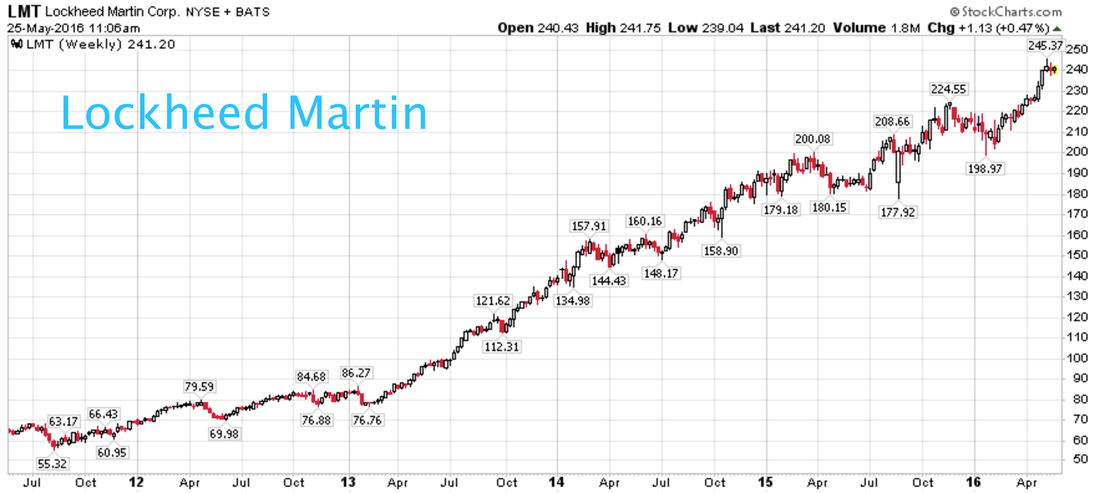
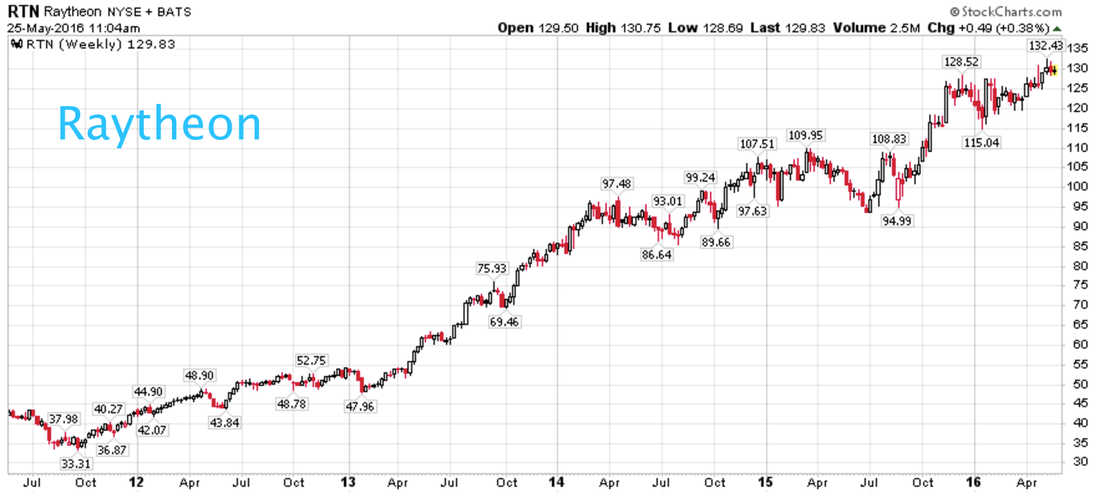
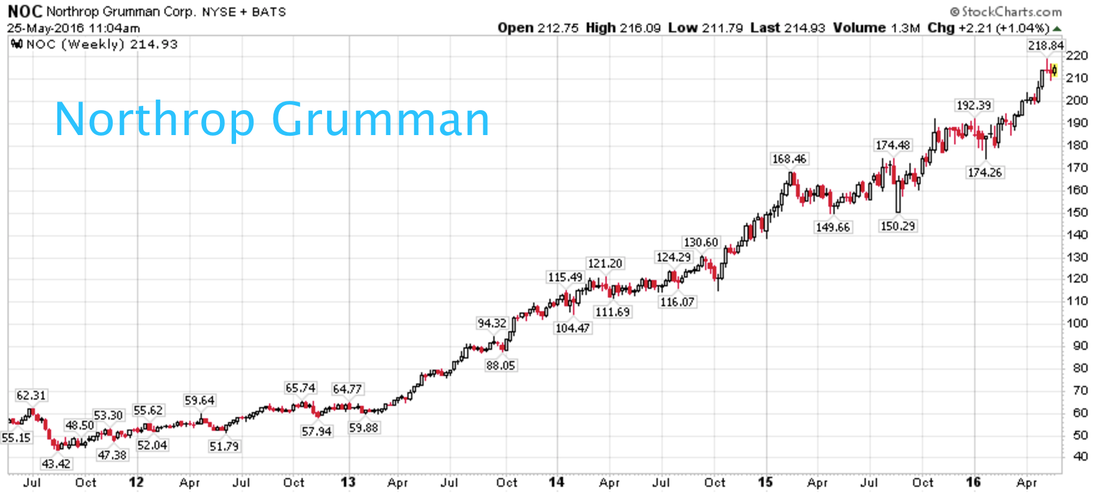

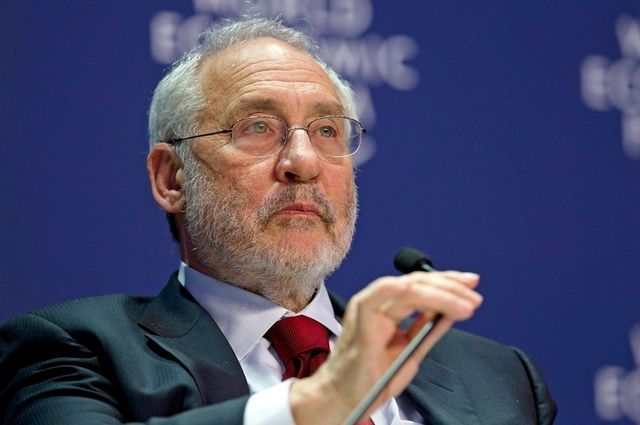
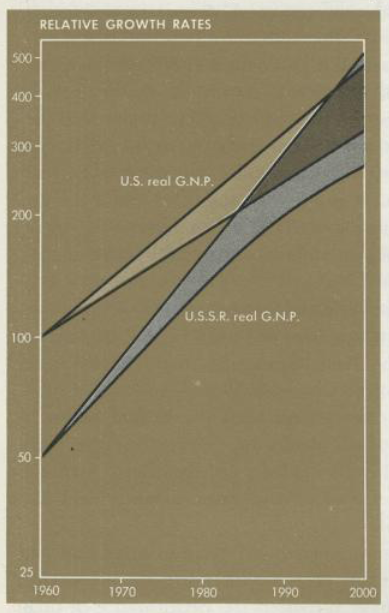





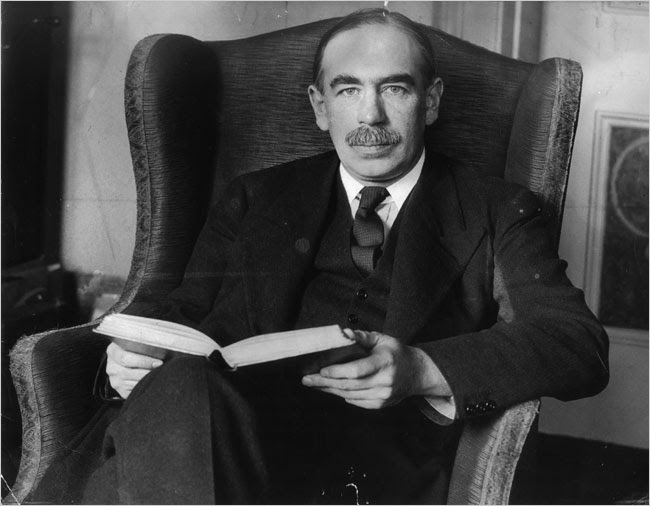

 RSS Feed
RSS Feed



